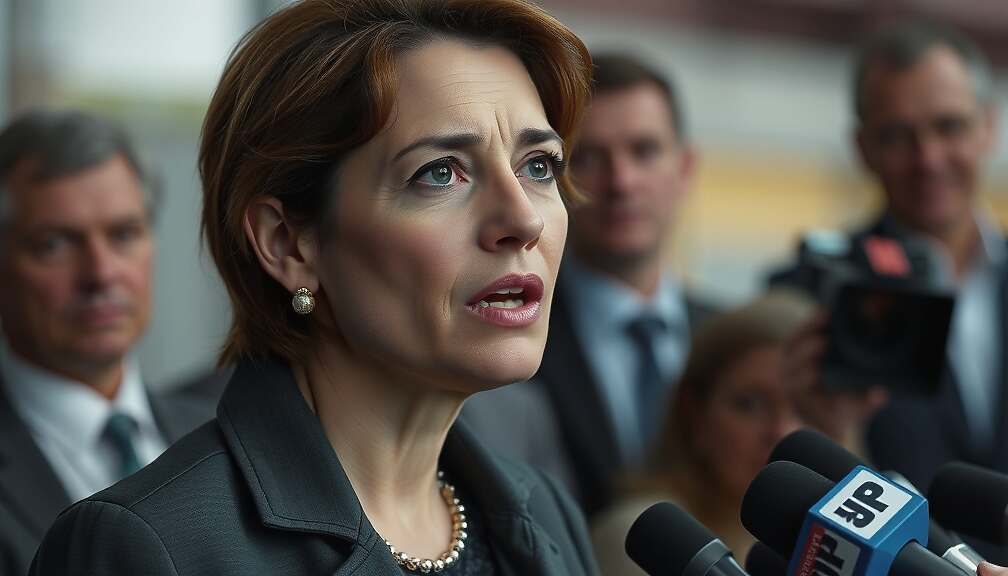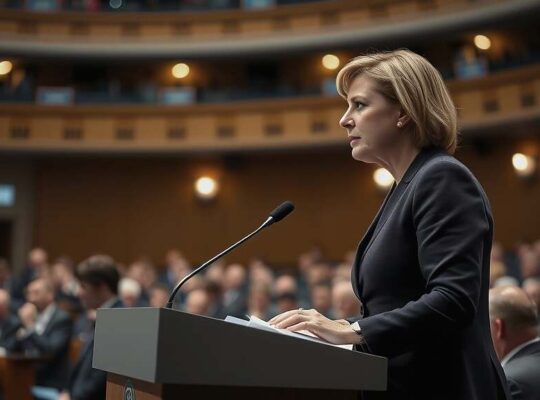The leader of the “Alliance for Progress” (BSW) party, Sahra Wagenknecht, has called on Germany’s governing coalition of the Christian Democratic Union (CDU) and the Social Democratic Party (SPD) to drastically reduce electricity prices, proposing a halving of current rates. Wagenknecht’s demand, voiced in statements to the Funke-Mediengruppe newspapers, emphasized that the promised relief regarding electricity taxes, as it currently stands, is insufficient to make electricity affordable for German households. She highlighted Germany’s position as having some of the highest electricity prices in Europe.
Wagenknecht advocated for a fundamental shift in energy policy, suggesting reforms to network fees which she believes should not be passed on to consumers. She proposed a transition of network operation from private entities to public control, the elimination of subsidies for renewable energy and a reduction of the value-added tax (VAT) on electricity to a reduced rate of seven percent, arguing that energy constitutes a basic necessity.
The second meeting of the CDU/SPD coalition committee is scheduled for later this Wednesday at the Chancellery. The meeting’s agenda is reportedly overshadowed by disagreements surrounding the proposed reduction of the electricity tax. Plans approved by the Federal Cabinet, championed by Finance Minister Lars Klingbeil (SPD), stipulate a permanent but limited reduction in the tax primarily benefiting industry and agriculture, rather than private households and smaller businesses.
This initiative has encountered resistance within the CDU, with voices advocating for broader consumer relief, potentially contingent upon securing offsetting funding. CDU leader Friedrich Merz has previously expressed support for universal relief, conditional on financial viability. The Finance Ministry estimates the cost of a comprehensive electricity tax reduction for all consumers would amount to 5.4 billion euros.












